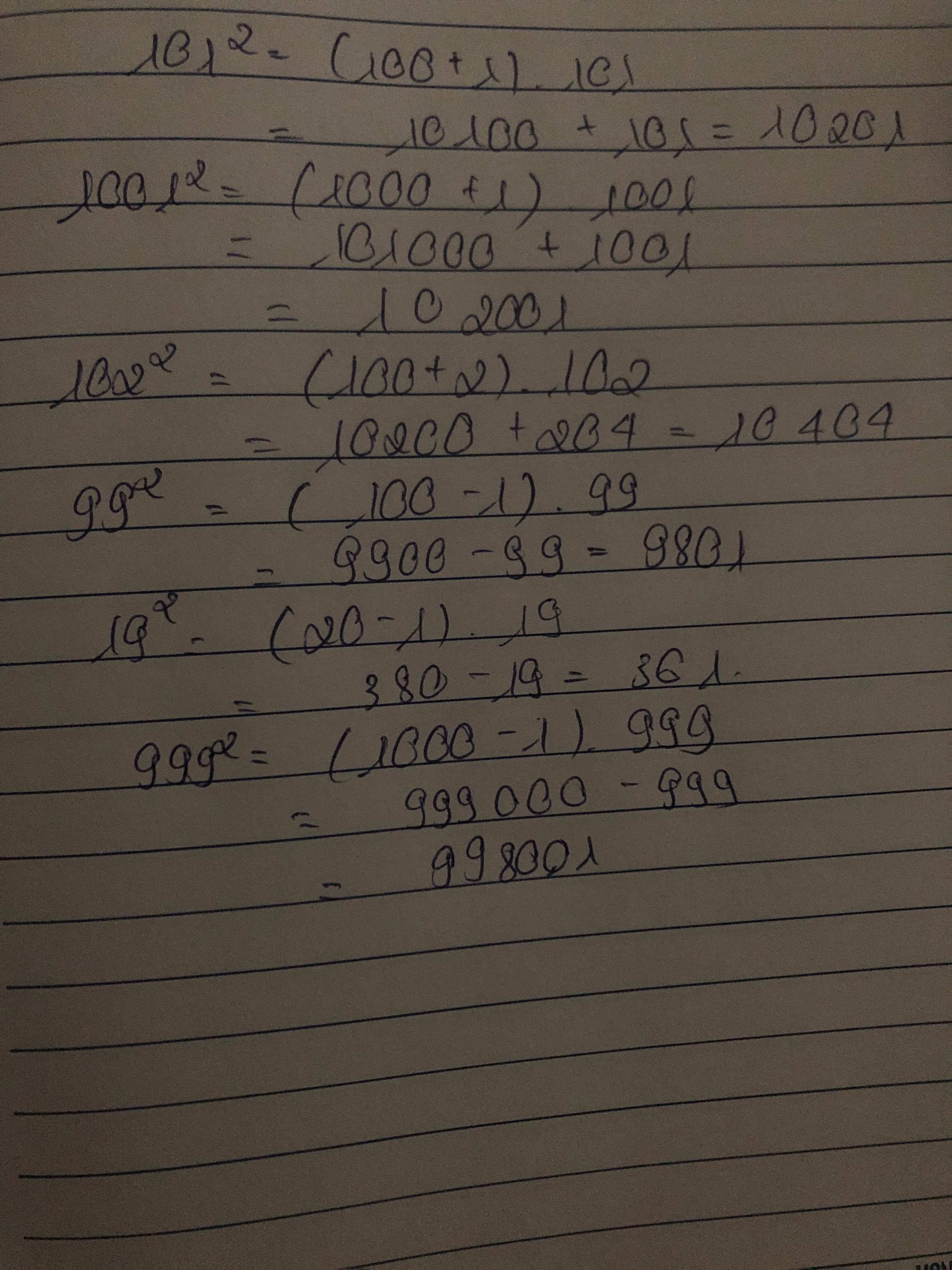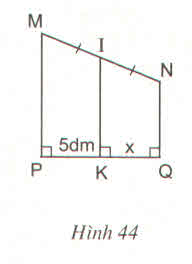
Hãy nhập câu hỏi của bạn vào đây, nếu là tài khoản VIP, bạn sẽ được ưu tiên trả lời.


\(101^2=\left(100+1\right)^2=10000+200+1=10201\)
\(1001^2=\left(1000+1\right)^2=1000000+2000+1=1002001\)
\(102^2=\left(100+2\right)^2=10000+400+4=10404\)
\(99^2=\left(100-1\right)^2=10000-200+1=9801\)
\(19^2=\left(10+9\right)^2=100+180+81=361\)
\(999^2=\left(1000-1\right)^2=1000000-2000+1=998001\)

2) Ta có: \(\dfrac{59-x}{19}+\dfrac{58-x}{18}=\dfrac{57-x}{17}+\dfrac{56-x}{16}\)
\(\Leftrightarrow\dfrac{59-x}{19}-1+\dfrac{58-x}{18}-1=\dfrac{57-x}{17}-1=\dfrac{56-x}{16}-1\)
\(\Leftrightarrow\dfrac{40-x}{19}+\dfrac{40-x}{18}-\dfrac{40-x}{17}-\dfrac{40-x}{16}=0\)
\(\Leftrightarrow\left(40-x\right)\left(\dfrac{1}{19}+\dfrac{1}{18}-\dfrac{1}{17}-\dfrac{1}{16}\right)=0\)
mà \(\dfrac{1}{19}+\dfrac{1}{18}-\dfrac{1}{17}-\dfrac{1}{16}\ne0\)
nên 40-x=0
hay x=40
Vậy: x=40

Xét ΔABC vuông tại A có
\(AC=AB\cdot\cot\widehat{C}\)
\(\Leftrightarrow AC=\sqrt{192}\cdot\cot60^0=8\left(cm\right)\)
Ta có: ΔABC vuông tại A(gt)
nên \(S_{ABC}=\dfrac{AB\cdot AC}{2}=\dfrac{8\sqrt{3}\cdot8}{2}=32\sqrt{3}\left(cm^2\right)\)

`a, 126^2 - 152 . 126 + 5776.`
`= 126^2 - 2 . 76 . 126 + 76^2`
`= (126+76)^2 = 202^2 = 40804`
`b, 3^8 . 5^8 - (15^4-1)(15^4+1)`
`= 15^8 - 15^8 + 1`
`= 1`

Chắc là \(+28^2\)
Ta có : \(A=\left(30-29\right)\left(30+29\right)+.....+\left(2-1\right)\left(2+1\right)\)
\(=30+29+28+...+2+1\)
\(=465< 600\)
Vậy ....
Sửa đề: \(A=30^2-29^2+28^2-27^2+...+2^2-1^2\)
\(=30+29+28+27+...+2+1\)
\(=465< 600\)
Vậy: A<600

AB^2+AC^2=BC^2
AC^2+ CĂN 192=4AC^2 (VÌ AC =1/2 BC)
SUY RA 3AC^2=CĂN 192
SUY RA AC^2=\(\frac{\sqrt{192}}{3}\)
SUY RA AC=


29^2 - 58 . 19 + 19^2
= 841 - 1102 + 361
= 100
\(29^2-58.19+19^2\)
\(=841-1102+361\)
\(=-261+361\)
\(=100\)